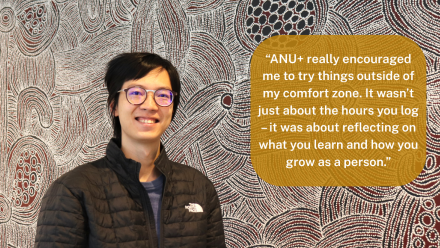“Love You Long Time” — Why Language Matters More Than We Think
You might’ve heard someone say it in jest, or maybe you’ve even said it yourself: “Love you long time.” At first glance, it might come across as a cheeky or light-hearted way to express affection. But when we take a closer look, the origins of this phrase reveal a more complicated and uncomfortable truth.
The phrase “Love you long time” was popularised in the 1987 film Full Metal Jacket, where a Vietnamese sex worker says it to a group of U.S. soldiers. This phrase then became associated with a number of racist, orientalist, and hypersexualised tropes.'
Understanding the Context
To call something "orientalist" means it presents a distorted, often romanticised or exoticised view of Asian cultures, especially through a Western lens. In this case, the phrase plays into a narrative where Asian women are portrayed as submissive, sexually available, and defined primarily through their relationships to men, especially white men. These stereotypes are not only false but also harmful. They reduce individuals to caricatures, and they contribute to broader patterns of racial and gender-based discrimination.
This is why we’re unpacking this phrase as part of our Word of the Month series. Not to shame or scold but to raise awareness. We all use words or expressions without knowing where they come from. It’s part of how language works: we absorb it through pop culture, social circles, and childhood experiences. But it’s also true that language carries history. And when we understand that history, we can start to be more intentional with the words we use.
Words Reflect Culture, Power, and Respect
Language doesn’t just communicate thoughts- it shapes them. The words we choose help to build (or break down) the kind of culture we live in. When phrases are rooted in harmful stereotypes or used to diminish others, even unintentionally, they can reinforce broader patterns of disrespect and exclusion.
That’s why pausing to reflect matters. If you catch yourself about to say “Love you long time,” it’s okay! Many of us have said things without knowing the full story behind them. A simple “See you later!” or “Love you, bye!” can go just as far, without the baggage.
Let’s Talk About It
Words are powerful. They influence how we relate to each other, how we understand difference, and how we create inclusive communities. At the IARC team, we believe that being mindful of language is a small but meaningful step toward a more respectful and compassionate university culture.
Do you have a phrase or expression you’d like us to unpack in a future edition of Word of the Month? We’d love to hear from you. Send us an email at respect@anu.edu.au or DM us on .


